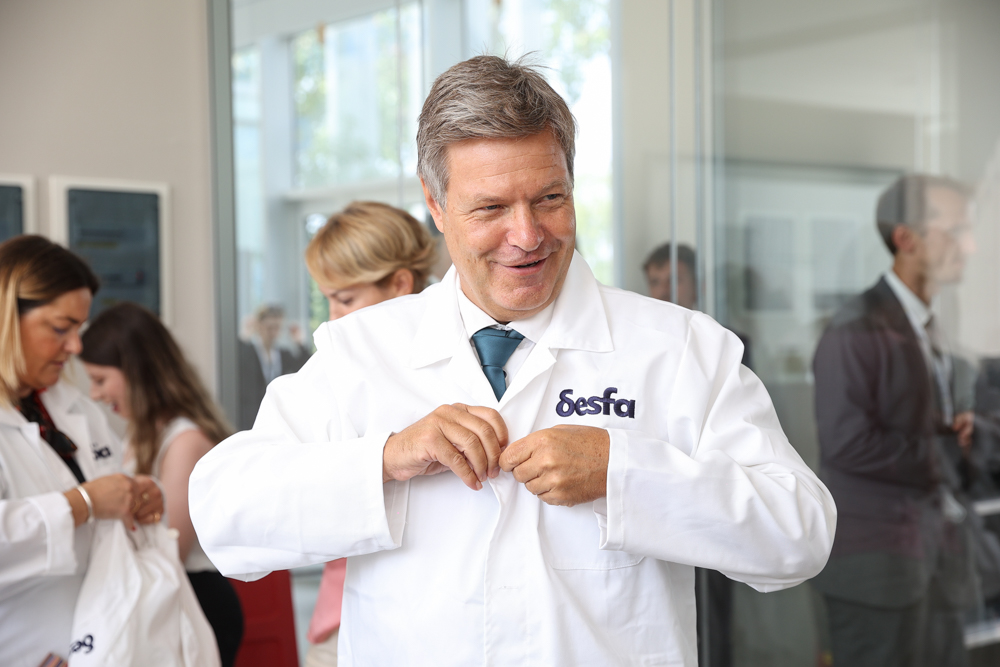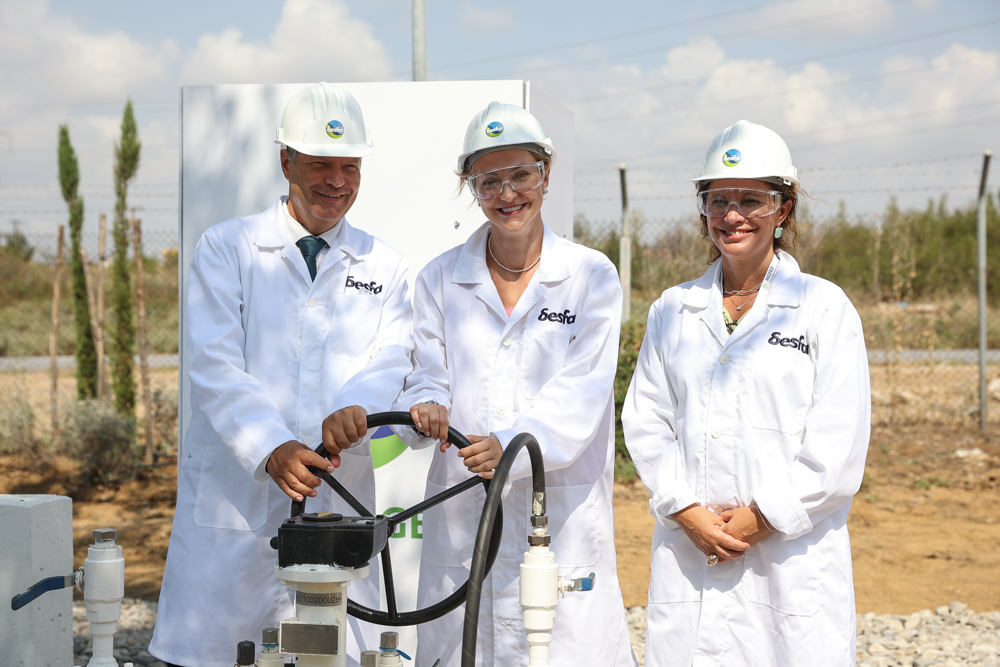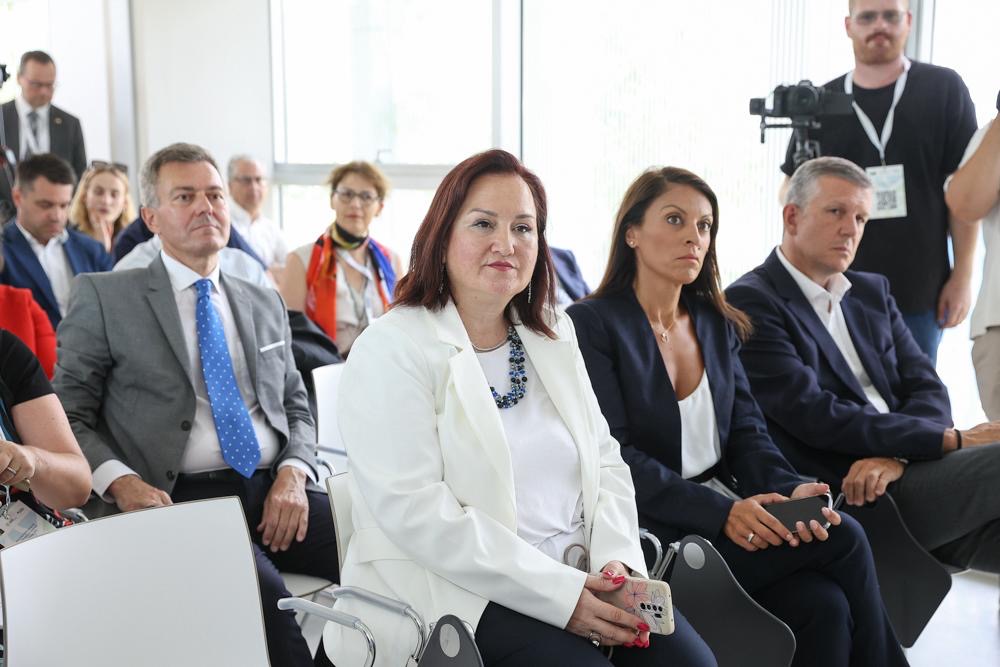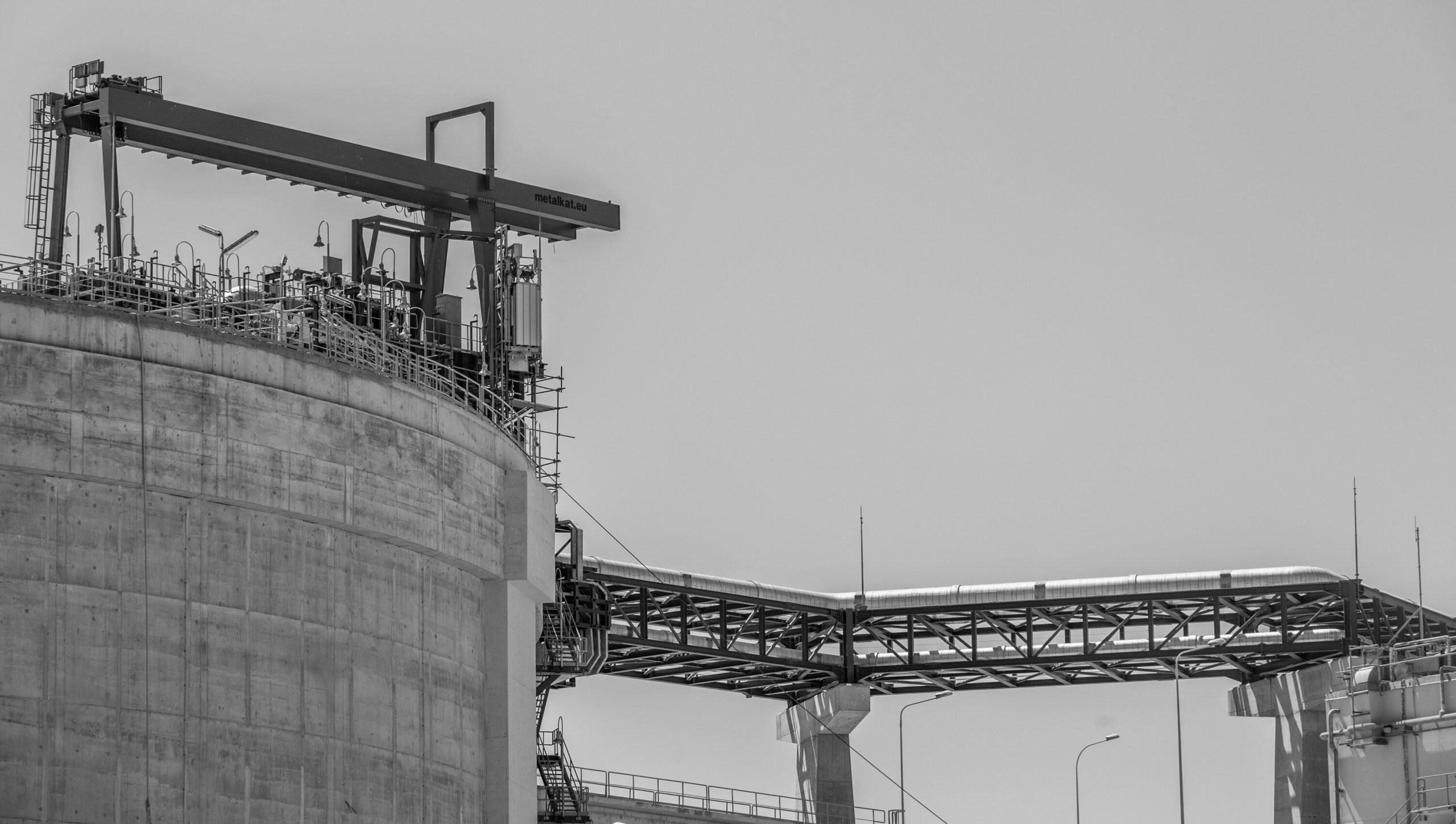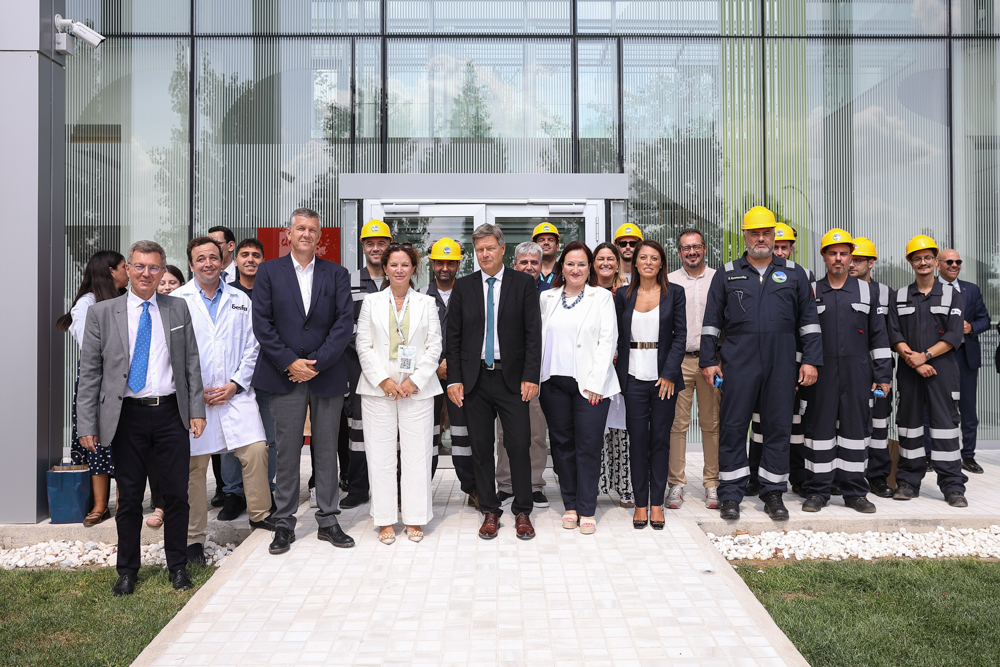
The Vice Chancellor and Federal Minister for Economic Affairs and Climate Action of Germany, Dr. Robert Habeck, visited the facilities of DESFA, Operator of the Greek National Natural Gas System, at the Operation & Maintenance Center of Northern Greece in Nea Messimvria, Thessaloniki, one of the most important facilities in the National Gas Transmission System, on Sunday, September 8, 2024, in the context of his presence at this year’s 88th Thessaloniki International Exhibition, where Germany participates as the honored country.
Vice Chancellor Habeck, accompanied by the CEO of DESFA, Maria Rita Galli and the Deputy Minister of Environment and Energy of Greece, Alexandra Sdoukou, had the opportunity to tour DESFA’s new Technical Training Centre, the first training center of its kind for the sector in the Southeast Europe, that was inaugurated on Friday 6 September, as a new hub of innovation and excellence for the development of sustainable gas networks and transitioning into a renewable gases era.
During the visit, Vice Chancellor Habeck had the opportunity to participate in an interactive demonstration of hydrogen injection to the grid. Following a guided tour by DESFA’s technicians through the simulation gas grid setup, Minister Habeck, under the supervision and guidance of the technicians, manually opened the inlet valve allowing the injection of a mixture of gas and hydrogen into the grid. This deliberate injection in the testing facility serves multiple technical and research purposes, primarily related to the behavior of hydrogen in the gas network and its compatibility with infrastructure originally designed for natural gas.
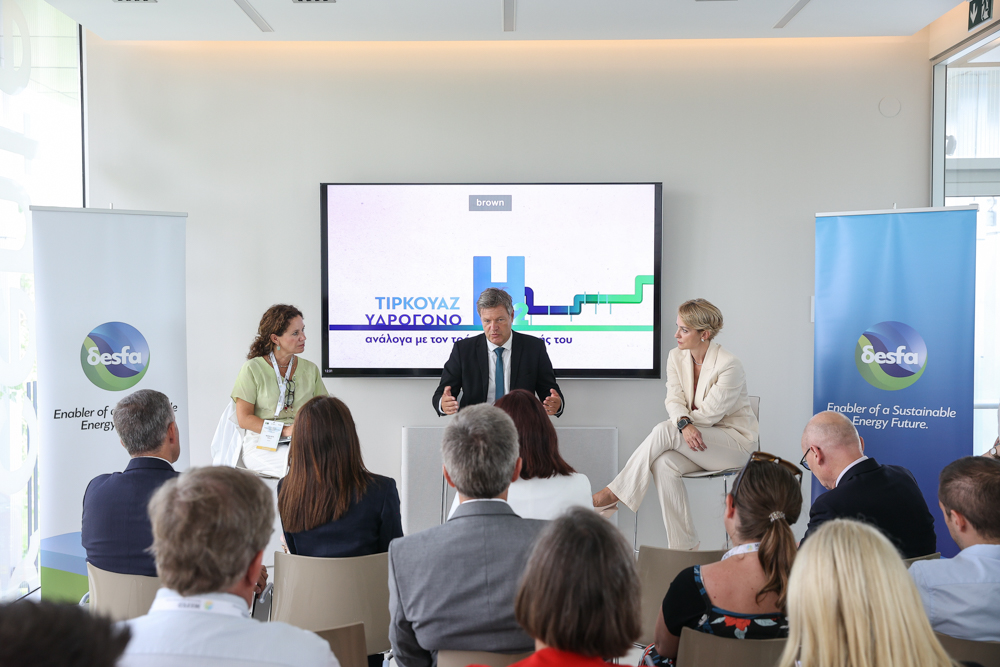
Following the interactive demonstration, Vice Chancellor Habeck together with Deputy Minister Sdoukou and Ms. Galli also had the chance to exchange views with young technicians and students on their experiences and the future of the energy sector, engaging in a discussion for the prospects of cooperation between Greece and Germany in hydrogen, as Greece has a significant potential to serve as a key part of a green hydrogen export corridor that can support the energy transition in Germany and Central Europe, leveraging Greece’s capacity for low-cost green H2 production and its position for enabling transit volumes from the MENA region and further emphasizing the importance of international cooperation in achieving energy sustainability.
DESFA is committed to advancing the hydrogen economy, recognizing hydrogen’s role for the country’s energy transition. To that end, DESFA is promoting the integration of hydrogen into Greece’s energy mix, adapting its network and developing new infrastructure that can support the country’s transition into the hydrogen era.
The company’s involvement in national and European hydrogen initiatives (Hydrogen Europe, European Hydrogen Backbone, founding member of ENNOH, SEEHyC) along with significant investments in hydrogen-ready infrastructure, underscores DESFA’s dedication to creating an integrated hydrogen market and promoting Greece as a hub for the production and transport of renewable gases to Europe.
On the occasion of his visit to DESFA’s facilities, the Vice Chancellor and Federal Minister for Economic Affairs and Climate Action of Germany, Dr. Robert Habeck, commented: “Hydrogen is a key technology for the future of our energy system and the path to a CO2 neutral economy. The test infrastructure and technology at DESFA is an important puzzle piece in establishing and promoting the h2 rampup, as repurposing pipelines is key for the quick transformation.”
The importance of hydrogen in achieving the goals of the energy transition was highlighted by Deputy Minister of Energy and Environment, Alexandra Sdoukou, in her statements at the end of Dr. Habeck’s visit. As she said: “Green Hydrogen is emerging as a central pillar of the energy transition, offering a sustainable alternative to fossil fuels in sectors such as industry and transport. Greece, leveraging its geographical advantages and partnerships at the European level, aspires to become a producer and exporter of hydrogen to the rest of Europe. In this direction, the new Technical Training Center is a strategic investment that will enable the training of the necessary specialized human resources to achieve this ambitious goal.”
In turn, the CEO of DESFA, Maria Rita Galli, said: “The visit of Vice Chancellor Robert Habeck underlines the importance of our investments for the energy transition, not only in Greece but also in the wider region. We are proud to lead the creation of a regional training and technical center for the integration of renewable gases into the energy mix of Greece and neighboring countries. As DESFA, we aspire to promote the development of the Greek hydrogen transport network by investing in new technologies that contribute to the advancement of a sustainable hydrogen economy in Greece and Europe.”
